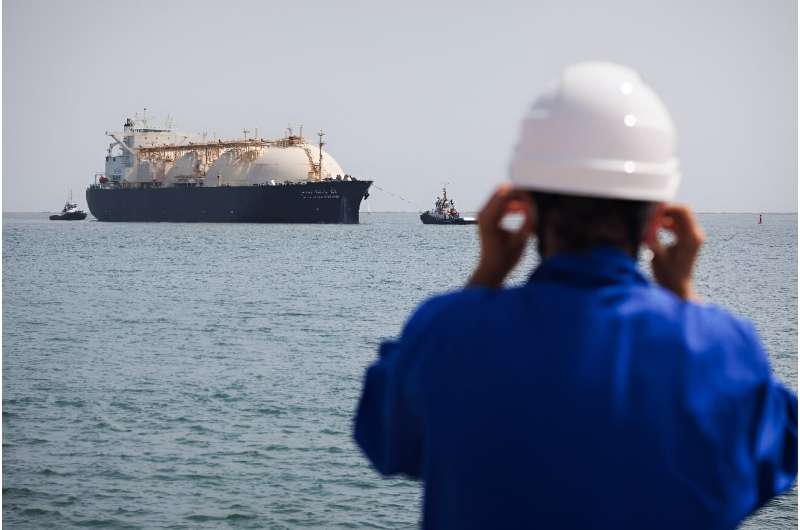This article has been reviewed according to Science X's editorial process and policies. Editors have highlighted the following attributes while ensuring the content's credibility:
fact-checked
reputable news agency
proofread
World demand for liquefied natural gas jumps 50% by 2040: Shell

British energy group Shell on Wednesday forecast that world demand for liquefied natural gas would jump more than 50 percent by 2040, fueled by China dumping coal.
"Demand for natural gas has already peaked in some regions but continues to rise globally, with LNG demand expected to reach around 625-685 million tonnes a year in 2040, according to the latest industry estimates," Shell said in a report.
Global LNG demand would grow beyond that date, "driven by industrial demand in China and economic development in South Asia and South-east Asia", the energy major added.
Steve Hill, executive vice president for Shell Energy, said China was likely to dominate LNG demand growth in the current decade "as its industry seeks to cut carbon emissions by switching from coal to gas".
While LNG is cleaner than coal, it also produces greenhouse gases that contribute to global warming.
Industry and many governments argue that LNG is a "bridge fuel" between coal and renewables such as wind and solar.
Hill on Wednesday said that "with China's coal-based steel sector accounting for more emissions than the total emissions of the UK, Germany and Turkey combined, gas has an essential role to play in tackling one of the world's biggest sources of carbon emissions and local air pollution".
Shell said global trade in LNG reached 404 million tonnes last year, up from 397 million tonnes in 2022.
Despite the small uplift owing to tight supplies, the company said "LNG continued to play a vital role in European energy security in 2023, following a slump in Russian pipeline exports to Europe" one year earlier.
Last year saw gas prices retreat from record highs set in the wake of Russia's invasion of Ukraine.
"However, gas prices and volatility remained significantly higher in 2023 than in the 2017-2020 period," Shell added.
© 2024 AFP


















